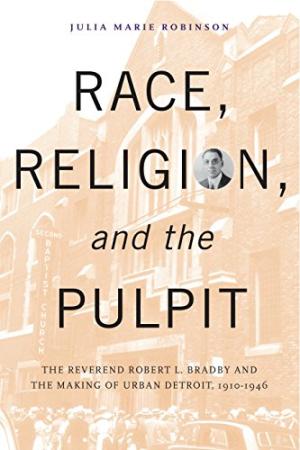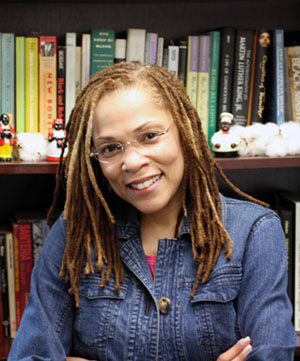Race, Religion, and the Pulpit – Rev. Robert L. Bradby and the Making of Urban Detroit

Julia Marie Robinson
Robinson is an associate professor in Religious Studies and an ordained minister.
During the Great Migration of African Americans from the South to the cities of the Northeast, Midwest, and West, the local black church was essential in the making and reshaping of urban areas. In Detroit, one church and one minister in particular demonstrated this power of the pulpit — Second Baptist Church of Detroit and its nineteenth pastor, the Reverend Robert L. Bradby. In her book, Robinson explores how Bradby’s church became the catalyst for economic empowerment, community building, and the formation of an urban African American working class in Detroit.
Robinson examines Bradby’s formative years in Ontario, Canada; his rise to prominence as a pastor and community leader at Second Baptist in Detroit, and the socio-historical context of his work in the early years of the Great Migration. She investigates the sometimes-surprising nature of relationships between Second Baptist and its members and prominent white elites in Detroit, including Bradby’s close relationship to Ford Motor Company and Henry Ford. Robinson details Bradby’s efforts as a “race leader” and activist, roles that were tied directly to his theology. She looks at the parts the minister played in such high-profile events as the organizing of Detroit’s NAACP chapter, the Ossian Sweet trial of the mid-1920s, the Scottsboro Boys trials in the 1930s, and the controversial rise of the United Auto Workers in Detroit in the 1940s.

Robinson is associate professor of African-American Religions and Religions of the African Diaspora in the Department of Religious Studies. She is an ordained minister in the Presbyterian Church, USA, and a member of the Presbytery of Charlotte-Mecklenburg.